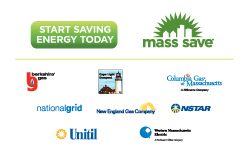Attorney General Narrows Potential Ballot Initiatives
With the deadline for submitting ballot initiatives for the 2014 election cycle, various interest groups submitted 33 ballot petitions to the Massachusetts Attorney General for her initial approval. The ballot petitions, which at their earliest stages simply require ten signatures, progress only if the Attorney General rules that they are properly drafted and constitutional. Of the thirty-three petitions submitted, petitions governing fourteen topics will continue on. Items meeting with the Attorney General’s review included: a higher minimum wage, a cut in the sales tax, an expanded bottle bill, and a repeal of a new computer services tax. The thirty-three questions filed with Attorney General Martha Coakley’s office proposed 18 new laws and four constitutional amendments. Many of the questions were variations of the same issue.
Other questions meeting constitutional muster included: creating nurse-patient staffing ratios, whale safe fishing and making daylight saving time the year-round standard time for the state. Items that did not pass the constitutionality test included proposed initiatives relative to genetically modified foods, repealing the new gaming law and the United States Supreme Court’s decision in Citizens United.
On the labor front, the minimum wage question would raise the wage from $8 to $10.50 per hour over two years. Another proposed ballot question would create a statewide earned sick time policy. From a taxation perspective, proponents filed a ballot question that would reduce the state’s sales tax rate from 6.25 percent to 5 percent and, separately, repeal the new law that applies the sales tax to computer and software technology services. Along those same lines, another ballot petition was filed to repeal the linking of the consumer price index to the gas tax.
Of the remaining notable filings, proponents have filed a ballot petition to expand the types of bottles covered by Massachusetts’ 1982 bottle bill. While the original law created a 5-cent deposit on carbonated beverages, the question would expand the law to include non-carbonated beverages such as water, tea and sports drinks. Efforts to expand the bottle law, while enjoying support in the legislature at some levels, have fallen far short in recent years.
Filing the questions with the Attorney General’s office is just the first step on a long road to the 2014 ballot. Now that the Attorney General has determined which questions passed constitutional muster, the next hurdle to getting a question on the ballot involves the submission of certified signature from voters. Proponents have until December 4th to collect the signatures of 68,911 certified voters.
Category: Health Care

